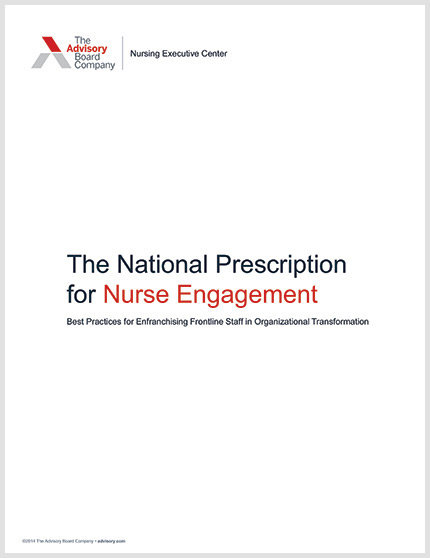Auto logout in seconds.
Continue LogoutNurses working 12-hour shifts are more likely to suffer from anxiety, musculoskeletal disorders, disturbed sleep, and stress than nurses working eight-hour shifts, according to a new review published in the Journal of Nursing Education and Practice.
Find the right shift length for your nursing staff
For the review, researchers searched through the Medline, Cinhale, PsycINFO, Embase, Web of Science, and SCOPUS databases for studies, published between 1980 and 2017, that compared the experience of nurses working 12-hour shifts in hospitals with those working 8-hour shifts.
Results
The researchers identified 12 studies for their review. Based on those studies, the researchers found:
- Of the three studies that looked at the relationship between 12-hour shifts and nurses' overall wellbeing, all three found that 12-hour shifts had a negative effect on the general health of nurses, including problems with cognitive anxiety, musculoskeletal disorders, sleep disturbance, and stress. However, the three studies did not find any significant difference between 12- and eight-hour shifts in terms of digestive and cardiovascular disorders, or in poor psychological health or somatic anxiety.
- Of the four studies that looked at the relationship between 12-hour shifts and nurse fatigue, three found nurses working 12-hour shifts experienced worse fatigue than those working eight-hour shifts, and one that did not find any significant difference between fatigue and critical thinking performances in 12- or eight-hour shifts.
- Of the nine studies that looked at overall job satisfaction between 12- and 8-hour shifts, five showed that nurses with 12-hour shifts had greater dissatisfaction with their jobs than those who worked 8-hour shifts. However, three of the studies found that nurses were overall more satisfied with 12-hour shifts than 8-hour shifts, with one study pointing out that there was a difference in pay and professional status between the two shifts, suggesting a possible reason for the difference in satisfaction.
Discussion
According to the researchers, the review found that nurses working 12-hour shifts "reported a variety of health and well-being concerns in relation to the impact" of their shift as compared to eight-hour shifts, including "sleep disturbance, stress, tiredness, fatigue, and anxiety." However, the researchers said there was little sufficient evidence overall, and called for additional research into the issue.
The researchers suggested that one possible reason for the negative health effects of 12-hour shifts on nurses could be prolonged exposure to the generally stressful responsibilities of a nurse. Nurses are often involved in life-and-death situations and generally have a very high level of responsibility.
According to the researchers, constant exposure to stressful situations for long periods of time, along with generally difficult hours of work (often nurses working 12-hour shifts were working overnight) and the overall psychological demands of the job, can lead to general stress, fatigue, cognitive anxiety, problems sleeping, as well as a number of other health problems (Vaidya, Becker's Infection Control & Clinical Quality, 6/27; Banakhar, Journal of Nursing Education and Practice, accessed 7/6; .
Get the national prescription for nurse engagement
It's more important than ever for frontline nurses to be engaged in their work, committed to their organization's mission, and capable of delivering high-quality care in a complex and constantly changing environment.
This report identifies the unique challenges of engaging nurses and equips nurse leaders with five strategies for building a highly engaged workforce.
Don't miss out on the latest Advisory Board insights
Create your free account to access 1 resource, including the latest research and webinars.
Want access without creating an account?
You have 1 free members-only resource remaining this month.
1 free members-only resources remaining
1 free members-only resources remaining
You've reached your limit of free insights
Become a member to access all of Advisory Board's resources, events, and experts
Never miss out on the latest innovative health care content tailored to you.
Benefits include:
You've reached your limit of free insights
Become a member to access all of Advisory Board's resources, events, and experts
Never miss out on the latest innovative health care content tailored to you.
Benefits include:
This content is available through your Curated Research partnership with Advisory Board. Click on ‘view this resource’ to read the full piece
Email ask@advisory.com to learn more
Click on ‘Become a Member’ to learn about the benefits of a Full-Access partnership with Advisory Board
Never miss out on the latest innovative health care content tailored to you.
Benefits Include:
This is for members only. Learn more.
Click on ‘Become a Member’ to learn about the benefits of a Full-Access partnership with Advisory Board
Never miss out on the latest innovative health care content tailored to you.

